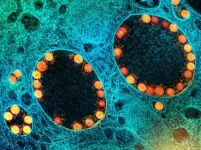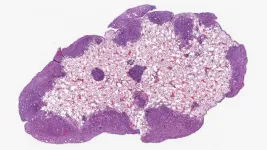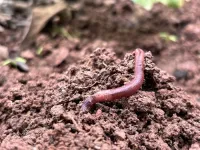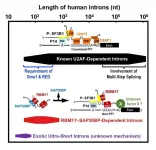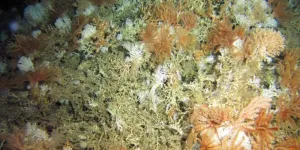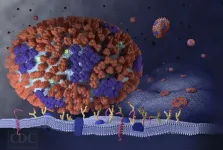(Press-News.org) The CRISPR Journal announces the publication of its February 2024 issue. The CRISPR Journal is devoted to publishing outstanding research in CRISPR biology, technology, and genome editing. Chief Editor is Professor Rodolphe Barrangou, PhD (North Carolina State University); Executive Editor is Dr. Kevin Davies. For full-text copies of articles or to arrange interviews with the editors, authors, or members of the editorial board, contact Kathryn Ryan at the Publisher.
1. Warrior spirit: An interview with sickle cell pioneer Victoria Gray,
The gene editing world and the sickle cell disease (SCD) community of about 100,000 patients in the US have been celebrating the landmark approval in December 2023 of Casgevy, the CRISPR-based cell therapy developed by Vertex Pharmaceuticals and CRISPR Therapeutics. The first SCD patient to enroll in the exa-cel trial in the US was Victoria Gray, from Forest, Mississippi. She received her gene-edited stem cells in July 2019 and has enjoyed a remarkable recovery, free from pain crises, blood transfusions, or hospitalizations. Although she has shared some details of her journey on National Public Radio, she has not given a major interview to the media – until now.
During a virtual summit broadcast from last month, GEN's The State of Cell and Gene Therapy, Victoria spoke candidly with Kevin Davies (The CRISPR Journal) and Uduak Thomas (GEN) about her experiences with SCD, her decision to enroll in the clinical trial, the highs and lows of the lengthy and arduous procedure, and her life after therapy. The CRISPR Journal is publishing a very lightly edited version of that inspiring interview.
Ms. Gray is also featured on the cover of the February 2024 issue of The CRISPR Journal.
Contact: Kevin Davies, PhD (Executive Editor, The CRISPR Journal)
2 Prime editing stem cell lines for type 2 diabetes research
A long-standing research interest of Dr. Francis Collins, former director of the NIH and chief science advisor to the White House), is understanding the genetic basis of type 2 diabetes (T2D). In the February 2024 issue of The CRISPR Journal, Collins, Lori Bonnycastle, and colleagues at the National Human Genome Research Institute use prime editing to generate human isogenic iPSC (induced pluripotent stem cell lines) that provide key models for studying T2D.
Representing some two years of research optimizing the prime editing of single base changes in iPSCs, the Collins lab has largely overcome some long-standing technical challenges. The authors report efficiencies of up to 73 percent for installing different single-base edits in half-a-dozen T2D candidate genes. The streamlined workflow generates edited cell lines within five weeks. Bonnycastle, Collins, and colleagues believe their experience will greatly help other researchers overcome efficiency problems that have hampered research.
Contact: Sarah Bates, PhD (Communications Director, NHGRI)
3. Purging Pigs of PRRS (Porcine Reproductive and Respiratory Syndrome) virus
A team of scientists at Genus, a British animal genetics company, report the generation of pigs resistant to porcine reproductive and respiratory syndrome (PRRS) virus for breeding and food production. Also known as blue-ear pig disease, PRRS was first detected in the US in 1987. It has since spread around the world, with a devastating impact on the swine industry, with estimates of annual losses exceeding $600 million in the US alone.
Using CRISPR-Cas9 genome editing, scientists at Genus edited the genome of pig zygotes and through further breeding of mosaic pigs, successfully established a breeding population of gene-edited pigs with a small deletion in CD163, the cell-surface portal for the PRRS virus. The Genus team considers this to be an important milestone, marking potentially the first integration of CRISPR gene editing into a livestock breeding program that paves the way for the elimination of a major infectious disease in the swine industry.
Contact: Brian Burger (Genus plc)
END
The CRISPR Journal announces the publication of its February 2024 issue
2024-02-14
ELSE PRESS RELEASES FROM THIS DATE:
COVID-19 vaccination and boosting during pregnancy protects infants for six months
2024-02-14
WHAT:
Women who receive an mRNA-based COVID-19 vaccination or booster during pregnancy can provide their infants with strong protection against symptomatic COVID-19 infection for at least six months after birth, according to a study from the National Institute of Allergy and Infectious Diseases (NIAID), part of the National Institutes of Health. These findings, published in Pediatrics, reinforce the importance of receiving both a COVID-19 vaccine and booster during pregnancy to ensure that infants are born with robust protection that lasts until they are old enough to be vaccinated.
COVID-19 is especially dangerous for newborns and young infants, and even healthy infants are vulnerable ...
Love songs lead scientists to new populations of skywalker gibbons in Myanmar
2024-02-14
Skywalker gibbon couples wake up each morning and sing to each other, their voices echoing across the forest canopy of their home. The primate’s endearing love song helped scientists confirm what was formerly a strong hunch: Myanmar has the largest population of endangered Skywalker gibbons on Earth.
When Star Wars-loving scientists identified Skywalker gibbons as a distinct species in 2017, fewer than 200 individuals were known to exist, all in southwestern China. A study published today in the International Journal of Primatology is the first in the past century to confirm living Skywalker gibbons in ...
Case study: drug-resistant bacteria responds to phage-antibiotic combo therapy
2024-02-14
PITTSBURGH, Feb. 14, 2024 – It was a last-ditch effort. For years doctors had tried to keep a patient’s recurrent drug-resistant bacterial blood infection at bay, but it kept coming back and antibiotics were no longer working.
The family agreed to try an experimental treatment that uses viruses to kill bacteria. The patient’s Enterococcus faecium bacterial strain, which had become zombie-like and was almost impossible to treat with currently available antibiotics, was tested against wastewater collected from across the country to find a virus – called a bacteriophage – that scientists theorized would specifically target the drug-resistant bacteria.
It worked ...
ETRI unveils AI analysis service platform at international e-sports tournament
2024-02-14
ETRI’s researchers have developed an AI-powered e-sports analysis platform that provides real-time win rate prediction services by analyzing gameplay screens. This platform was notably applied to the highly popular League of Legends (LoL) during a recent international e-sports tournament, garnering positive feedback.
Electronics and Telecommunications Research Institute (ETRI) has developed a technology that recognizes real-time game situations by analyzing play elements extracted from game videos and automatically generates highlights by identifying key play events in the game.
Also, this e-sports service platform, based ...
Pancreatic cancer hijacks a brain-building protein
2024-02-14
Scientists at Cold Spring Harbor Laboratory (CSHL) and the University of California, Davis have reached a new breakthrough in pancreatic cancer research—eight years in the making. It could help slow the disease’s deadly spread.
In 2017, as a postdoc in CSHL’s Tuveson lab, Chang-il Hwang and collaborators from the Vakoc lab uncovered a protein essential for jumpstarting metastasis in pancreatic ductal adenocarcinoma (PDAC). Now an assistant professor at UC Davis, Hwang recently reunited with CSHL Professors David Tuveson and Christopher Vakoc. The trio once again set their sights on PDAC. The disease is known for its aggressiveness. ...
Pesticides to help protect seeds can adversely affect earthworms’ health
2024-02-14
While pesticides protect crops from hungry animals, pesky insects, or even microbial infections, they also impact other vital organisms, including bees and earthworms. And today, research published in ACS’ Environmental Science & Technology Letters reveals that worms are affected by the relatively small amounts of chemicals that can leach out of pesticide-treated seeds. Exposure to nonlethal amounts of these insecticides and fungicides resulted in poor weight gain and mitochondrial DNA (mtDNA) damage in the worms.
Pesticide treatment can be introduced at several different ...
Discovery of a subset of human short introns that are spliced out by a novel mechanism
2024-02-14
In humans, the length of pre-mRNA varies extensively (from 30 to 1,160,411 nucleotides by recent studies). The fundamental mechanism of splicing has been studied with model pre-mRNAs including 158- and 231-nt introns, for historical instance, that are spliced very efficiently in vitro and in vivo. Such an ideal pre-mRNA contains good splicing signal sequences, i.e., the 5′ splice site, the branch-site (BS) sequence, and the polypyrimidine tract (PPT) followed by the 3′ splice site that are recognized by U1 snRNP, U2 snRNP and U2AF2–U2AF1, respectively. Prof. Mayeda says, “Given the diverse lengths ...
Cold-water coral traps itself on mountains in the deep sea
2024-02-14
Corals searching for food in the cold and dark waters of the deep sea are building higher and higher mountains to get closer to the source of their food. But in doing so, they may find themselves trapped when the climate changes. That is shown in the thesis that theoretical ecologist Anna van der Kaaden of NIOZ in Yerseke and the Copernicus Institute for Sustainable Development in Utrecht will defend on Feb. 20 at the University of Groningen. “When the water gets warmer, these creatures prefer to be deeper, but a coral doesn’t just walk down the mountain,” Van der Kaaden said.
Deep and dark
Unlike the famous, colorful tropical corals, cold-water corals live ...
Cost-effective to routinely change surgical gloves and instruments as well as being safer
2024-02-14
Surgeons who routinely change surgical gloves and instruments are incurring similar costs to those using the same equipment, a new study has found.
The economic evaluation funded by the UK’s National Institute for Health and Care Research (NIHR) follows a clinical trial conducted at 80 hospitals in Benin, Ghana, India, Mexico, Nigeria, Rwanda, and South Africa which established that routine change of gloves and instruments reduces surgical site infections (SSIs) by 13%.
The evaluation, published by the Lancet Global ...
Scientists discover hidden army of lung flu fighters
2024-02-14
Scientists have long thought of the fluid-filled sac around our lungs merely as a cushion from external damage. Turns out, it also houses potent virus-eating cells that rush into the lungs during flu infections.
Not to be confused with phages, which are viruses that infect bacteria, these cells are macrophages, immune cells produced in the body.
“The name macrophage means ‘big eater.’ They gobble up bacteria, viruses, cancer cells, and dying cells. Really, anything that looks foreign, they take it up and destroy it,” said UC Riverside virologist Juliet Morrison, who led the discovery team. “We were surprised to find them in the lungs ...

